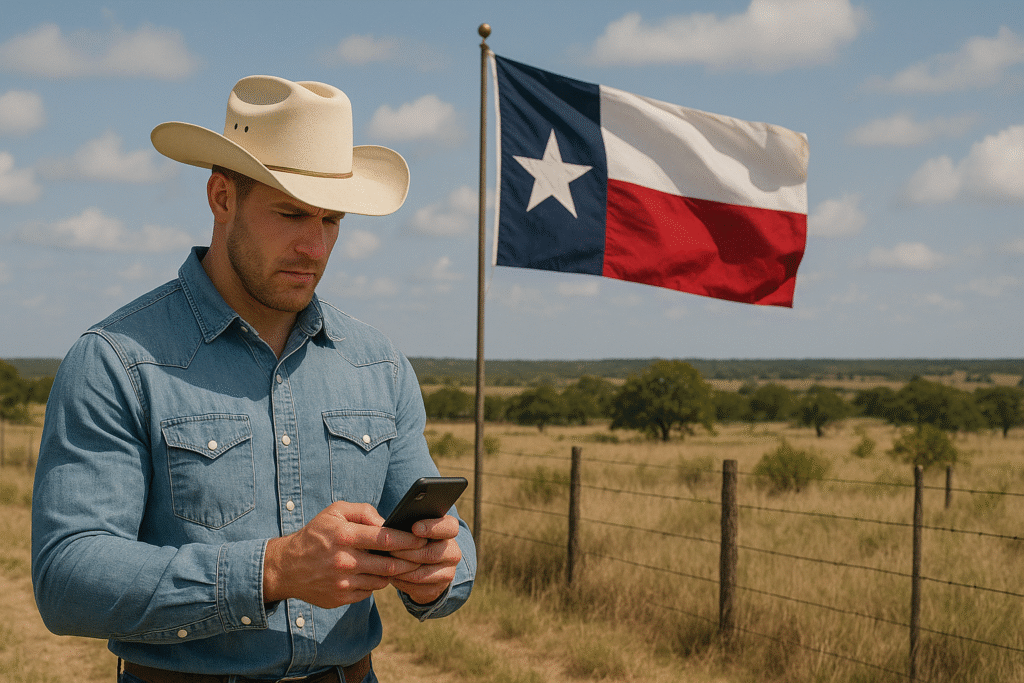
Disclaimer: This blog is for educational purposes only. It should not be taken as legal advice. Please talk to your attorney to understand how Texas Senate Bill 140 applies to your business.
Everything is bigger in Texas, including their SMS regulations.
What is SB-140?
On September 1, 2025, a new Texas law called Senate Bill 140 (SB-140) went into effect.
This law changes how businesses text people in Texas (SMS and MMS) to talk to their customers. It’s part of the state’s telemarketing rules, and it adds new costs and risks for small business owners.
What’s Different Now?
SB-140 expands the definition of telephone solicitation to include text messages. That means:
- Texting is now covered under the Texas Deceptive Trade Practices Act (DTPA)
- Customers can sue businesses directly if they think the rules were broken
- Small businesses must register like telemarketers, even if they are only texting people who want their messages
What Businesses Must Do
If your business texts Texas residents (or is based in Texas), the law may require you to:
- File a Telephone Solicitation Registration Statement with the Texas Secretary of State
- Pay a $200 filing fee
- Post a $10,000 security deposit (bond, letter of credit, or certificate of deposit)
- Renew registration every year
On top of this, businesses must also follow Texas “quiet hours” rules:
- No texts before 9:00 AM or after 9:00 PM, Monday–Saturday
- No texts before 12:00 noon or after 9:00 PM on Sundays
Who Gets Exemptions?
The law gives breaks to some groups, like:
- Publicly traded companies and their subsidiaries
- Banks and insurance companies
- Universities and nonprofits
- Businesses that have operated under the same name for at least 2 years and only text existing or former customers
For most small businesses and local gyms, salons, retailers, and service providers, these exemptions don’t apply.
Why It Matters
Texting is one of the most effective ways to reach customers.
- 98% of texts are read (compared to ~20% of emails)
- 45% of people respond to texts
But SB-140 makes it harder for small businesses to use this channel.
How RevText Helps
At RevText, we don’t leave you guessing. Here’s how we support you under SB-140:
- Compliance Guidance – Our team helps you understand opt-in language, STOP/HELP rules, and quiet hours.
- Settings Control – If you don’t want to message Texas until you’re registered, go to:
Settings → Contact Settings → Exclude Texas - Automation Tools – RevText automatically tracks opt-ins, opt-outs, and quiet hours to help reduce risk.
- Ongoing Innovation – As laws change, our software updates to keep you ahead.
What You Should Do Next
- Talk to your attorney about whether your business needs to register in Texas.
- Review your opt-in process to make sure you have clear permission.
- Use RevText settings to pause Texas messaging if you don’t want the risk right now.
- Stay updated — laws can change, and we’ll keep you informed.
Final Thoughts
Texas SB-140 makes texting more complicated, but it doesn’t mean you have to stop. With the right tools and the right guidance, SMS can still be your most powerful marketing channel.
RevText is here to help you stay compliant, protect your business, and keep your customer communication strong.



